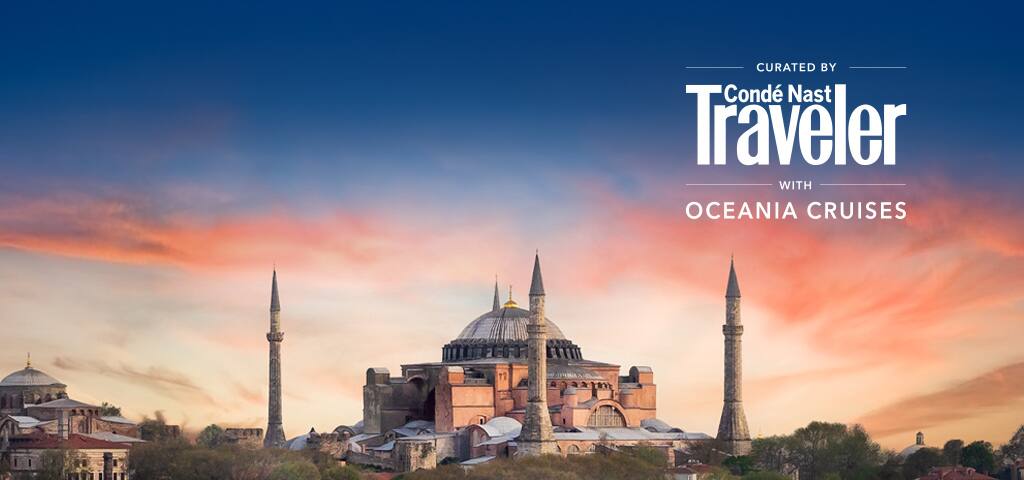Istanbul, Turkey
Exclusive Editor’s Tips:
Grab lunch at Restaurant Pandeli inside the Spice Bazaar
Istanbul’s 500-year-old Grand Bazaar is such a bountiful shopping experience you could spend an entire port day there and barely scratch the surface. After combing the stores of local artisans, or “usta,” for hand-woven kilims and delicate gold jewelry, make your way to the iconic blue-tiled Pandeli inside the nearby Egyptian Bazaar, known for its spices, which has been serving classic Turkish cuisine (think succulent roast lamb with rice, smoky grilled eggplant, and oven-baked quince) for more than a century. What began as a humble köfte stand is now a culinary icon, and its legacy remains unwavering—in fact, Michelin awarded it Bib Gourmand in 2022. Make sure to book a table a few weeks ahead of time.
Soak at a hammam
Cleansing oneself at a hammam is a requisite part of Istanbul life, and while there are plenty to choose from there are certain spots that are worth bookmarking above others. One such place is Kılıç Ali Paşa Hamamı in Karakoy, just a stone’s throw from Galataport. Built between 1578 and 1580 by Ottoman architect Mimar Sinan, the bathhouse was originally designed to serve the mariners who dwelled in this seafront district. The painstakingly renovated space is magnificent, featuring massive curved domes, smooth marble, and original mosaics. Steam yourself or indulge in a traditional hammam treatment (a steam bath plus scrub), just as generations of Istanbulites have done for centuries. Note: The hammam is open to women between the hours of 8 a.m. and 4 p.m. and men from 4.45 p.m. to 11.30 p.m.
Explore the charming Çukurcuma neighborhood
Çukurcuma, within the district of Beyoğlu, is beloved for its winding cobblestone streets, early 20th-century architecture, and rows of antique shops. If you're interested in shopping for kilims, the classic woven carpets ubiquitous in Turkey, make your way to A La Turca House, a four-story, late-19th-century home piled high with them. Browse hundreds of rugs in myriad patterns and colors—all of which have been personally sourced and painstakingly restored by owner Erkal Aksoy. (Even better: Prices are fixed so you won’t have to navigate as much haggling as you would in the Grand Bazaar.) Afterwards, head to the Museum of Innocence, the literary haunt founded by Nobel Prize-winning Turkish author Orhan Pamuk. The eccentric space was created in coordination with his novel of the same name, but you needn’t have read one to understand the other. An ode to Istanbul, it’s filled with glass cases displaying black and white photos, old movie posters, and all sorts of knick knacks gathered from across the city. Use the audio guide to get lost in Pamuk’s semi-fictional world, and don’t leave without stopping by the bookshop, which sells both his novels and other writings inspired by the city.






